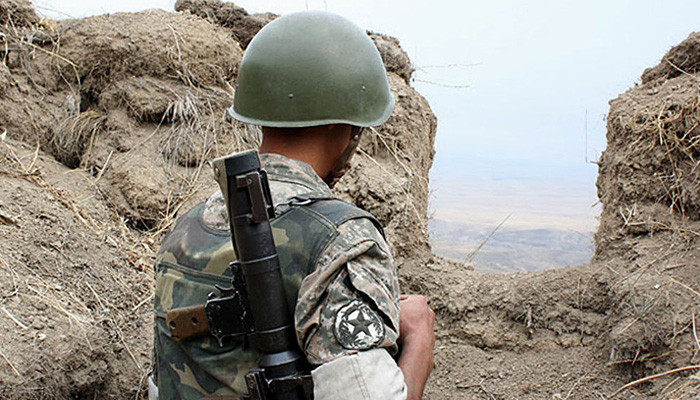+21 °C, +14 °C ... +27 °C Tomorrow:+28 °C

Fighting between Ukrainian forces and Russia-backed rebel militias in the east of the country intensified on Saturday as fears grew for the durability of a ceasefire agreement that took effect at 12.01am on Sunday local time (10.01pm GMT on Saturday). In a live midnight broadcast, the Ukrainian president, Petro Poroshenko, issued the order for the country’s armed forces to hold their fire. In a statement before issuing that order, Poroshenko expressed concern over risks to the ceasefire posed by the unrest that raged on Saturday around the strategic government-held railway hub of Debaltseve, which has been besieged by separatist forces. In an inauspicious omen for the prospects of any cessation of hostilities, rebels have said they will not consider any battles for the town to be a violation of the ceasefire. The leaders of France, Germany, Russia and Ukraine had backed the truce as part of a peace plan agreed in Minsk on Thursday, but fighting escalated in the hours before it came into effect. According to Poroshenko, Vladimir Putin, the Russian president, and Russia-backed rebels had bargained for a “preparatory delay” rather than an immediate ceasefire. The opposing sides were apparently spending the extra time solidifying positions on two main fronts, along the Azov Sea coast near Mariupol and around the city of Debaltseve to the north, which fighters have compared with the second world war battle of Stalingrad. Both cities are under Ukrainian control, but hold strategic value for the Donetsk and Luhansk breakaway republics. Even before the peace plan was agreed, 50 Russian tanks, 40 missile systems and 40 armoured vehicles had crossed into Ukraine, Kiev claimed. The Ukrainians were moving up reinforcements on Saturday as well, in the hope that a ceasefire would allow them to reach Debaltseve, a national guard commander told theObserver. Political statements in the runup to the ceasefire suggested neither Kiev nor Moscow fully expected fighting to cease. Putin’s spokesman, Dmitry Peskov, said Russia could not affect developments on the ground, reiterating the Kremlin’s claim that it was not a party to the conflict despite overwhelming evidence that Russian armour and troops have been in Ukraine. British equipment is now also reportedly in Ukraine after a private firm sold 20 decommissioned British army Saxon armoured vehicles to Kiev. Kiev also seemed to be bracing itself for continued clashes. Poroshenko warned on Saturday that, if the ceasefire did not work, he would declare a state of martial law across the country. Kiev has previously refrained from doing so for fear that it would not only cause discontent among the population but also give Moscow an excuse to escalate tensions. In a telephone call with Poroshenko hours before the start of the ceasefire period, US president Barack Obama expressed his “deep concern about the ongoing violence, particularly in and around Debaltseve”. The White House said in a statement that the two leaders “emphasised the pressing need” for all parties to implement the ceasefire and agreed to remain in contact in the coming days. Obama also spoke with German Chancellor Angela Merkel who took a lead role in negotiating the cease-fire agreement. US secretary of state, John Kerry, spoke to his Russian counterpart Sergei Lavrov on Saturday, urging full implementation of the Minsk agreements, including a midnight ceasefire. Before the ceasefire deadline, statements by separatist officials cast doubt on whether fighting would end at the appointed hour. Alexander Zakharchenko, the rebel leader in the city of Donetsk, was quoted by the RIA Novosti news agency as saying his fighters would not allow Ukrainian forces to escape Debaltseve. Separatists have said the Ukrainian troops there would be offered only the opportunity to surrender. Many fighters and civilians in eastern Ukraine do not believe the truce can last, since they have already seen ceasefires declared in June and September fail as the opposing sides continued fighting, both claiming to be responding to attacks. The Ukrainian military said 11 soldiers had been killed and 40 wounded on Friday and seven killed and 23 wounded on Saturday. For weeks, rebels have been attempting to cut off Debaltseve, which holds a key railway junction, and seize it from the reported 8,000 Ukrainian troops defending the city. Speaking after the Minsk agreements, Putin suggested it was fully surrounded and Ukrainian forces should agree to abandon it, but Kiev has insisted that it is not cut off and will remain government territory. Although rebels have been able to virtually surround Debaltseve and pound it with rockets and artillery, the road connecting the city with Ukrainian forces in Artemivsk is not fully under either side’s control. Pro-Russia forces shelled the city 15 times and attempted to storm it early on Saturday, Kiev said. “Fighters are destroying the city of Debaltseve,” regional police head Vyacheslav Abroskin wrote on his Facebook page. “There is incessant shelling of civilian homes and buildings. The city is burning. A Grad [rocket] scored a direct hit on the police station.” On the road to Debaltseve, a national guard squad commander with the call-sign Orest said his unit had arrived from the northern city of Kharkiv to reinforce troops pinned down in the besieged city, where the fighting “makes Stalingrad look tame,” he said. Ukrainian Grad rocket launchers boomed in the distance. They had not been able to get through to Debaltseve due to intense shelling and machine gun fire further down the highway, but would try again, he said. As he spoke, a Grad rocket launcher sped back toward Artemivsk, having fired all 40 of its tubes. “If we don’t shoot, then they’ll cut off the road,” he said. Members of the national guard medical unit in Artemivsk said they were preparing ambulances to go to Debaltseve if the ceasefire allowed them to get through. They had 30 cots laid out in a former clinic ready to take in wounded soldiers. Drivers were last able to take ambulances through on Thursday. The unit had lost four of 11 ambulances, and at least one medic had been killed and one captured in recent days, said Igor Ilkiv, commander of the main national guard medical squad in Artemivsk. “We’re seeing more casualties,” said an ambulance driver with the call-sign Biker. “The mortar and rocket attacks are getting worse. It seems like the ceasefire will only be the start of more problems.” On Saturday, a military ambulance delivered the body of a soldier killed in the village of Paschnya, which is in the no-man’s land between Luhanske and Debaltseve, to the mortuary in Artemivsk. The medic, who declined to give his name, said it was the third dead man he had delivered in 24 hours. Many more dead and wounded were trapped in Debaltseve, he said. “The fighting has got worse, a lot worse, over the past two to three days,” he said, wiping his hands on his bloody flak jacket. “We can only get to the outskirts of Debaltseve, then they start shelling and we can’t get through.” With many issues still up in the air, the Minsk achievement is still very much in the making Meanwhile, Kiev has been waging what Poroshenko said was a counter-offensive meant to move the demarcation line near Mariupol back to where it was in September. The Azov volunteer battalion fighting there reported that the village of Shirokine, between Mariupol and rebel positions near the Russian border, had been almost completely destroyed in “tank battles” and artillery and rocket attacks. Elsewhere in the east, populated areas on both sides of the frontlines have been suffering attacks in recent days. At least a dozen civilians were killed on Friday as shelling hit the government-controlled towns of Gornyak and Schastye and the rebel-controlled cities of Horlivka and Donetsk. What appeared to be a rocket attack struck the town of Svitlodarsk near the Ukrainian lines while the Observer was there on Friday. Anna, a shopkeeper whose store was hit by a shell on Monday, said she did not believe the ceasefire would last. She sleeps on a makeshift cot in the back room over her store. “I’m not going to do major renovations; they’ll just bomb it again,” she said before running into the back room as incoming rockets whined overhead. Kerry also expressed concern to Lavrov about the fierce fighting around the town of Debaltseve, and efforts by Russia and the separatists to cut off the town in advance of the ceasefire, a senior US State Department official said. |
MAMUL.am - News from Armenia, Artsakh (Nagorno-Karabakh) and the world
Republication or redistribution of MAMUL.am content is expressly prohibited without the prior written consent.
Address: 1 Charents str., Yerevan, Republic of Armenia.
Tel.: +374 (10) 55-20-59
E-mail: info@mamul.am
Tel.: +374 (91) 99-22-02
E-mail: marketing@mamul.am



























